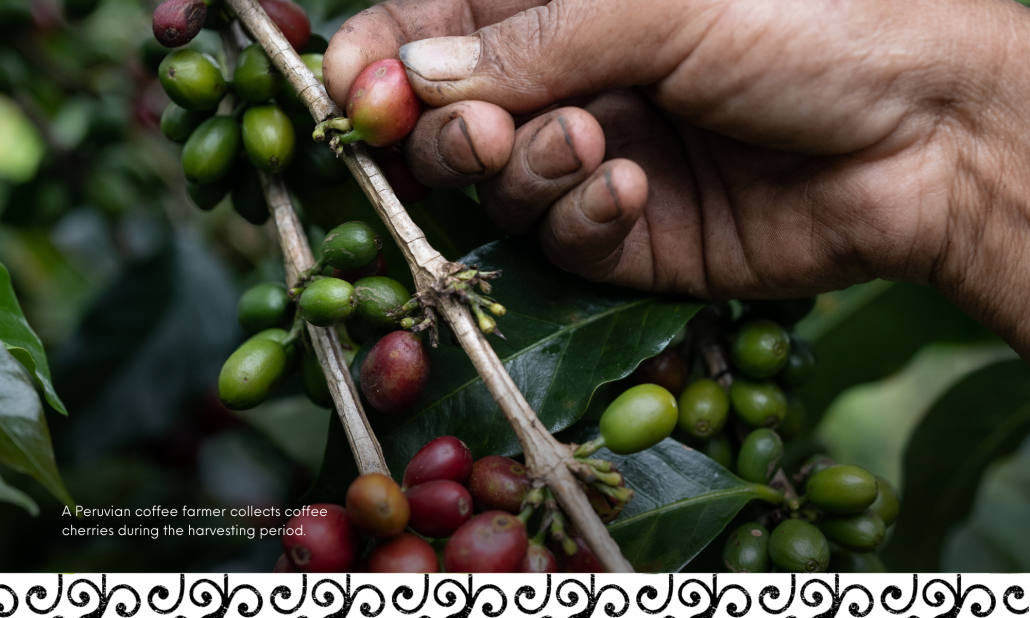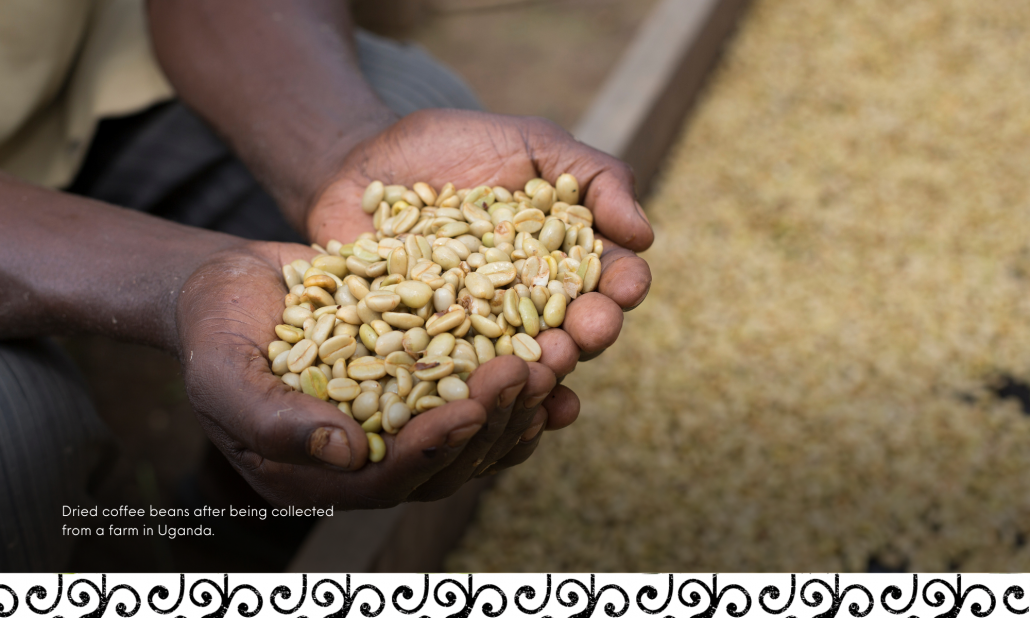Coffee Pricing: Paying a Fair Share to Farmers
10 juillet 2023
Fairtrade’s global coffee network comprises of nearly 900,000 certified coffee farmers in over 650 producer organisations, across 31 countries. Learn how Fairtrade's move to increase the Minimum Price for coffee will impact many of the organisations we work with.
Strengthening Protections for Farmers
Despite the recent spikes in global coffee prices, coffee farmers are struggling with inflation, rising production costs, and crop loss due to the effects of climate change. The World Bank estimates smallholder farmers produce 60% of the world’s coffee, yet nearly half of those smallholder farmers are living in poverty; nearly a quarter of them live in extreme poverty. Coffee prices in 2022 were relatively high, but profits ultimately failed to reach the farmers themselves. Studies have shown that producers typically retain around 1% of the retail coffee price, which, for a $4 cup of coffee, equals around $0.04 per cup.
Fairtrade coffee producers are protected from some of this price volatility and receive a more stable and reliable income as they benefit from the Fairtrade minimum coffee price. In addition to this, Fairtrade producers also receive a Premium, which can be invested in community projects chosen democratically by the farmers, such as education, healthcare, or infrastructure improvements.
In August 2023, Fairtrade will raise its Minimum Price for coffee in an effort to strengthen protections for coffee farmers, amid the escalating impacts of climate change and growing global economic volatility. This change will raise the baseline price by 19% and 29% for Fairtrade certified Robusta and Arabica coffee respectively.
There is hope this will have a positive impact on the Fairtrade coffee sector.

CAC Pangoa
Characterised by rugged mountains, deep valleys, and dense forests and situated in the Central Jungle of Peru, the region of Pangoa has a rich cultural and ecological past. With a long history of coffee farming dating back to the early 20th century, coffee was first introduced to the region by migrants from the Andean highlands who settled in the area and started cultivating coffee as a cash crop. Additionally, the formation of co-operatives and farmer associations in the area helped to consolidate the local coffee industry and empower small-scale farmers.
Today, the main economic activities in Pangoa are agriculture and forestry, with coffee being the most important cash crop. During the mid-20th century, coffee production in Pangoa expanded rapidly, and the region became known for producing high-quality, organic coffee beans. In recent years, CAC Pangoa has become a hub for sustainable and organic coffee farming, with many small-scale farmers using environmentally friendly practices to grow their crops.
CAC Pangoa runs various social programmes for its members and families:
- A housing fund to improve living conditions
- A health fund to provide preventive health and emergency procedures
- An education fund, providing long-term loans with the aim to cover educational expenses of members
- Social and environmental projects such as the planting of forest and fruit trees on members’ farms, demonstration plots for the training on soil and water conservation
We spoke to Albino about the impact of the Fairtrade Minimum Price rise on the co-operative. He said: “In my opinion, even though the policy is applicable since August, the effects in the local market are now evidenced through increases in the local purchase price.
"The positive effects are it will help to cover the farmer’s production costs, making them more sustainable."
“The negative effects, however, when the market drops, this would make the industry think twice about acquiring coffee, since the gap between a certified Fairtrade coffee and a non-certified would be big, which could have a negative effect in the demand of certified coffee (as of today this is a speculation).”
Albino also talked to us about the challenges CAC Pangoa have been facing in recent years. He said: “Climate effects, the variation of the temperature, heavy rains, and extended droughts have had an impact in the quality of the product. Particularly this year, we have a slight delay in the cocoa and coffee harvest."

Banyankole Coffee Services
Situated around 1,500m above sea level lies Kabwohe; a town in the Sheema District of western Uganda. An area that is characterised by rolling hills and lush vegetation.
Coffee is a major export crop in Uganda and as a result is a significant contributor to the country’s economy by providing foreign exchange earnings, employment and income opportunities across the supply chain. The Kabwohe area is ideal for coffee farming due to its favourable altitude, nutrient-rich soil, consistent rainfall and proximity to major coffee markets.
Nestled in the heart of Kabwohe is Banyankole Coffee Services (BCS). Founded by three coffee farmers in 2014 with the aim of producing good quality coffee and achieving good prices to benefit farmers, today, BCS works with more than 1,500 farmers supporting them to export the highest quality Robusta coffee to local and international markets.
BCS has also provided training to the community on environmental conservation practices such as reforestation, coffee seedlings to individual farmers to replace old coffee trees, and linked farmers to international markets. We spoke to Managing Director, Lauben Kurubaija about the impact the minimum Fairtrade price rise would have on BCS. He said: “The rise is a two way traffic. When the Fairtrade prices are raised and the purchases at farm level is reduced a bit, this will perhaps leave the farmers with profit margin so that the business is sustainable."
"BCS use the Fairtrade Premium for community projects and quality standards for the coffee."
"Our farmers normally get advance payment on their coffees to pay children’s school fees. Coffee production has increased as farmers are supplied with seedlings under premium arrangement to improve productivity to mention but a few. Staff payments are done promptly and other quality services are paid in time to enable smooth running of the business."

